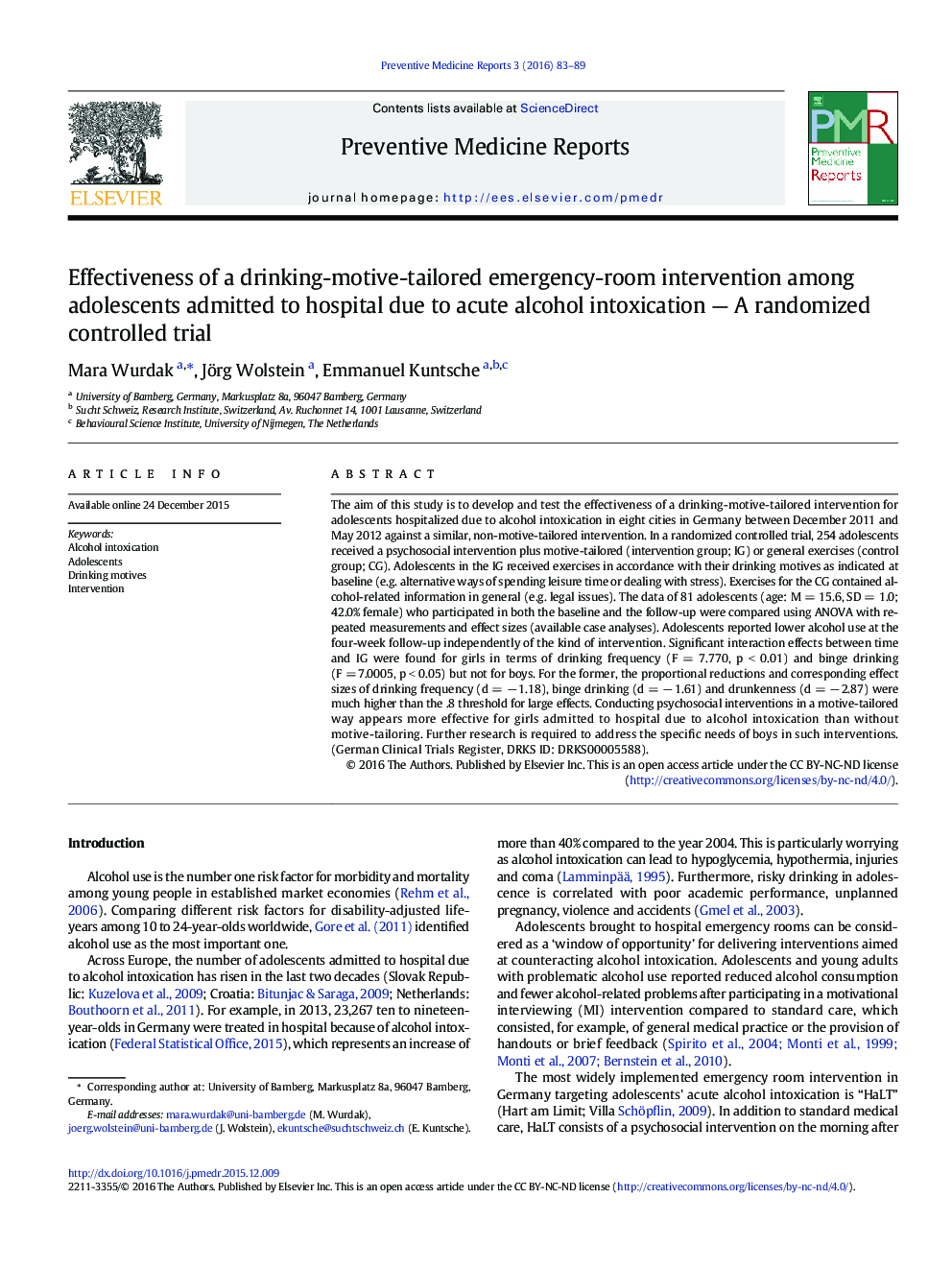| کد مقاله | کد نشریه | سال انتشار | مقاله انگلیسی | نسخه تمام متن |
|---|---|---|---|---|
| 4202333 | 1609089 | 2016 | 7 صفحه PDF | دانلود رایگان |
• Adolescents hospitalized for alcohol intoxication reported lower alcohol use 4 weeks after the psychosocial intervention.
• For girls, the intervention was even more effective when motive-tailored.
• For boys, there was no significant effect of the motive-tailored intervention additional to HaLT.
The aim of this study is to develop and test the effectiveness of a drinking-motive-tailored intervention for adolescents hospitalized due to alcohol intoxication in eight cities in Germany between December 2011 and May 2012 against a similar, non-motive-tailored intervention. In a randomized controlled trial, 254 adolescents received a psychosocial intervention plus motive-tailored (intervention group; IG) or general exercises (control group; CG). Adolescents in the IG received exercises in accordance with their drinking motives as indicated at baseline (e.g. alternative ways of spending leisure time or dealing with stress). Exercises for the CG contained alcohol-related information in general (e.g. legal issues). The data of 81 adolescents (age: M = 15.6, SD = 1.0; 42.0% female) who participated in both the baseline and the follow-up were compared using ANOVA with repeated measurements and effect sizes (available case analyses). Adolescents reported lower alcohol use at the four-week follow-up independently of the kind of intervention. Significant interaction effects between time and IG were found for girls in terms of drinking frequency (F = 7.770, p < 0.01) and binge drinking (F = 7.0005, p < 0.05) but not for boys. For the former, the proportional reductions and corresponding effect sizes of drinking frequency (d = − 1.18), binge drinking (d = − 1.61) and drunkenness (d = − 2.87) were much higher than the .8 threshold for large effects. Conducting psychosocial interventions in a motive-tailored way appears more effective for girls admitted to hospital due to alcohol intoxication than without motive-tailoring. Further research is required to address the specific needs of boys in such interventions. (German Clinical Trials Register, DRKS ID: DRKS00005588).
Journal: Preventive Medicine Reports - Volume 3, June 2016, Pages 83–89
